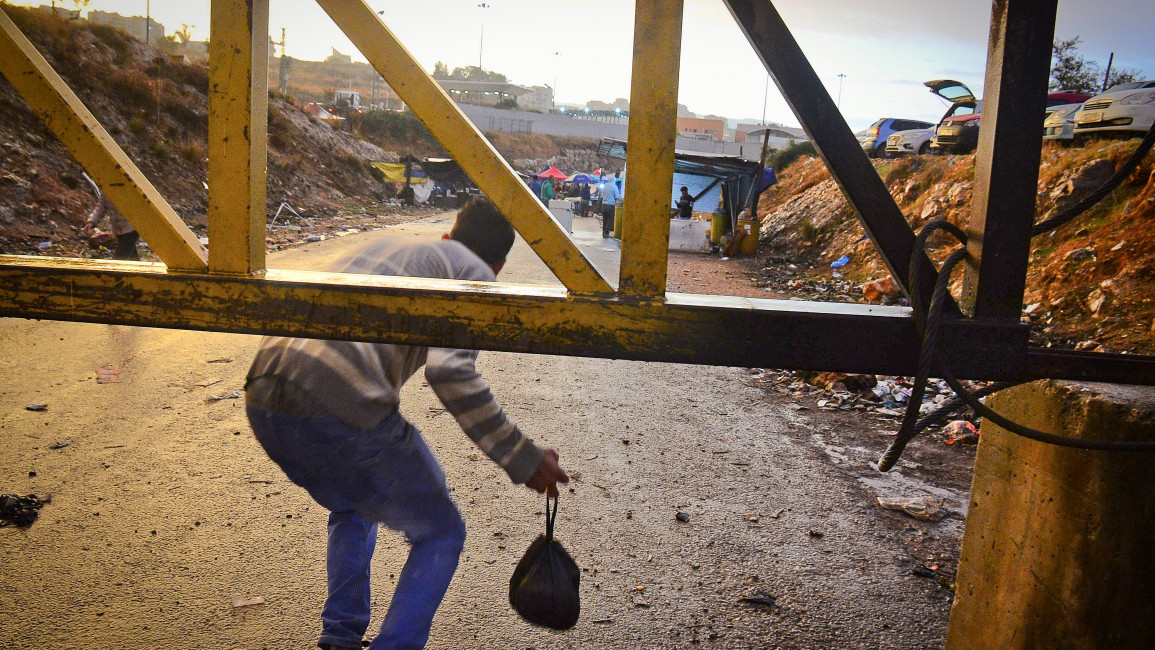Palestinians prepare for harder times after PA announces salary cuts
Salary cuts for Palestinian civil sector workers announced this week could last several months, the spokesman for the Palestinian finance minister has told The New Arab.
Palestinian Prime Minister Mohammad Shtayyeh said Monday that Israel’s cuts on customs money to Ramallah for December amounted to 213 million shekels (around $213 million). The Palestinian government then announced a 25 percent cut in salaries, starting from the payments for November.
"The salary cuts are directly linked to the retention of tax money by Israel," Abdul Rahman Bayatnah, spokesperson of the Palestinian ministry of finance told The New Arab.
"They might last for a month or several months, depending on when the customs tax money will be released by Israel."
A grant from the Algerian government will provide "great relief" to the Palestinian Authority's budget, "but we still don’t know how long will it take to actually receive it", Bayatnah said, referring to the $100 million pledged to Ramallah by Algiers.
This is not the first time the PA has to cut public salaries. Following the Trump administration's funding withdrawals in 2017, the PA paid salaries with a 25 percent cut for six months.
Civil sector employees hoped that blow to their finances would not be repeated.
"We feared this would happen again. I have three children and my wife works in the government too, and both our salaries are already not sufficient to sustain our family expenses. With the cuts it's going to be worse," Eyad Yousef, a public employee at a government organisation in Ramallah, told The New Arab.
"During the last salary cut in 2019, we had to cut down on our most basic expenditures, like food and clothing," Yousef recalled. "I had to take a second job and we borrowed money that I had to pay back for months after the salary cuts were over”.
Palestinian Authority says would cut wages amid prisoner, tax dispute with Israel: The PA's 140,000 employees in the West Bank and Gaza would see their November salaries cut by 25 percent, treasury says https://t.co/zoyJWUdfIh Haaretz pic.twitter.com/5siQLI1xz5
— Jewish Community (@JComm_NewsFeeds) December 6, 2021
The impact of Israeli retention of Palestinian tax money will extend far beyond the civil sector, A.D, a Palestinian economic analyst who preferred not to be named, told The New Arab.
"The PA has gone into debt with private banks beyond all limits, to the point that some banks won't lend the government any more. All sectors will be affected by this," A.D. said.
"The PA is in charge public education and public health care for millions of Palestinians. Additionally, there are the social aid programmes, including payments for families of Palestinian prisoners in Israeli prisons, which are the reason why Israel is retaining the tax money. All of these services will be affected," they said.
"The salary cuts will not stop the current inflation of prices, because Palestine is too small of an economy to have such an impact on prices of imports. Working Palestinians will pay the price of this crisis on all levels."



